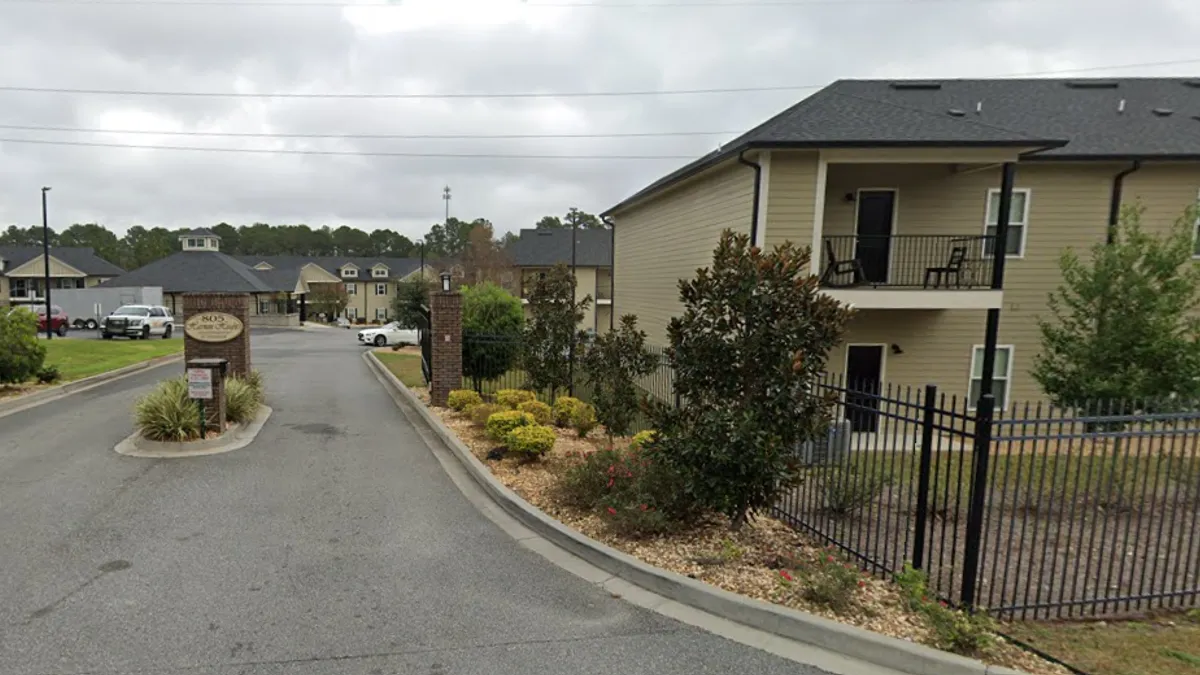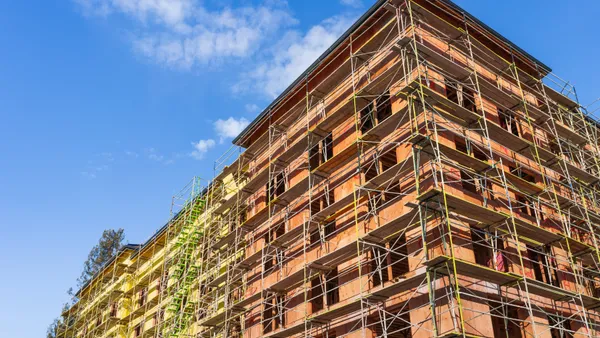Dive Brief:
- With a few exceptions, Sun Belt markets have the most multifamily loans maturing in the coming years, according to a new report from Yardi Matrix.
- Atlanta, Dallas, Denver, Houston, New York City and Chicago have the most multifamily loans coming due between now and 2029, according to the report. In that timeframe, 27 metros have at least $5 billion in loans maturing.
- In 2024, $61.8 billion in apartment loans are set to mature, followed by another $84.3 billion in 2025, according to the report from Yardi. Over the next five years, 58,533 properties, representing $525 billion of the total $1.1 trillion of loans currently backed by apartments, will see their loans mature, according to Yardi.
Dive Insight:
Multifamily originations peaked earlier this decade as transactions hit record levels. In 2021, $194.7 billion of loans were made, followed by $209.8 billion in 2022, according to Yardi. By 2023, as interest rates and tepid rent growth took hold, origination volume dropped by 45% to $115.3 billion.
Projected national maturities by year
| Year | Total |
| 2024 | $61.8 billion |
| 2025 | $84.3 billion |
| 2026 | $89.3 billion |
| 2027 | $77.9 billion |
| 2028 | $107.3 billion |
SOURCE: Yardi Matrix
Fannie Mae and Freddie Mac originated $641.8 billion, or 56.3%, of the multifamily loans in Yardi Matrix's database. Commercial banks originated at 16.4%, or $187.3 billion, while the federal government, including HUD, followed at 10.1%, $115.7 billion. Debt funds (6.2%, $69.9 billion), life companies (5.9%, $67.6 billion) and commercial mortgage-backed securities (2.2%, $25.2 billion) rounded out the list.
So far, the delinquency rate for apartments is relatively low – less than 1% for many lenders — compared to other sectors, like office. “I can see the delinquency rate going up, but not to the point where we're going to have a systemic crisis,” Paul Fiorilla, director of U.S. Research at Yardi Matrix, told Multifamily Dive.
Metros with the largest volume of maturities through 2029
| City | Total |
| Atlanta | $34.9 billion |
| Dallas | $26.6 billion |
| Denver | $22.9 billion |
| Houston | $20.8 billion |
| New York City | $19.9 billion |
| Chicago | $18.8 billion |
SOURCE: Yardi Matrix
Distress follows?
As loans mature, Atlanta; Houston; Raleigh/Durham, North Carolina; Orlando, Florida; and Austin, Texas, are seeing negative rent growth, which could exacerbate problems. In the report, Yardi said that interest rates, strategies around loan extensions, property fundamentals, regulatory issues and when loans were made will help determine the extent of distress.
But Fiorilla doesn’t see widespread problems. “There will be pockets of distress,” he said. “However, if you look at the national numbers, multifamily fundamentals are doing well in most every market.”
Even though apartment owners with maturing loans will face higher interest rates and a decline in property values, Vincent DiSalvo, the chief investment officer at Boston-based apartment owner Kingbird Investment Management, thinks the concerns are “overblown.” He pointed to rent growth that was still outpacing historical trends in many metros as a reason to be optimistic that increased income can help offset some of the higher debt service payments that owners are dealing with.
“Even with the supply that was coming online, over the last six months to a year, we still saw meaningful pickup in a lot of our markets,” DiSalvo said.
But DiSalvo acknowledges that owners who bought in the last couple of years could face issues. “I think the distress that we're starting to see is really from the people who financed over the last 24 months, bought at super-low cap rates and financed with floating-rate debt and the debt service is 50% to 75% higher than was anticipated,” he said.
Click here to sign up to receive multifamily and apartment news like this article in your inbox every weekday.











